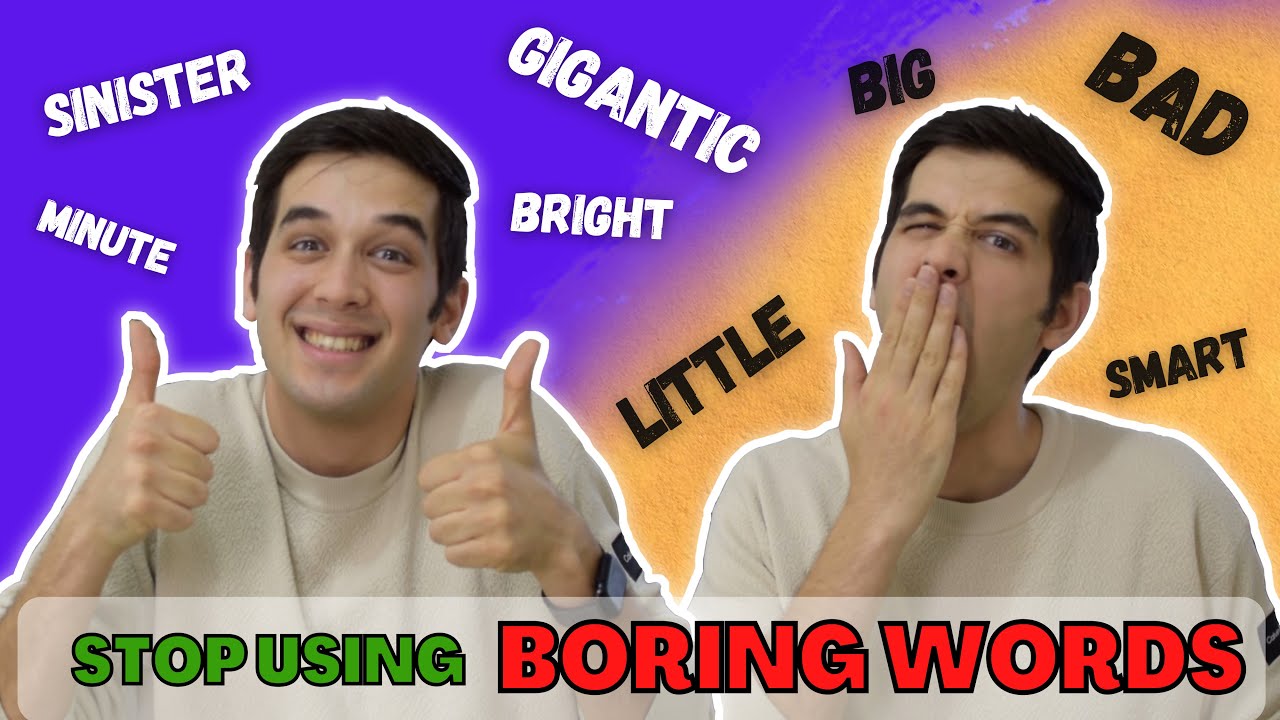Learning about argument phrasal verbs in English is like unlocking a superpower for effective communication. Imagine having a toolbox filled with special words and phrases that can make your ideas stronger and clearer when you’re having discussions or disagreements. These phrasal verbs act like magic spells that help you express yourself confidently and navigate conversations with ease. Just like a skilled gamer with a variety of moves, understanding these special phrases empowers you to be a master communicator, making your words more impactful and helping you build stronger connections with others.
Additionally, knowing arguing phrasal verbs allows you to understand conversations better and respond appropriately. It’s like having a secret code to decipher what others are saying during discussions or debates. By learning these special language tools, you not only become more skilled at expressing your own thoughts but also gain the ability to navigate through different viewpoints and understand the perspectives of those around you. It’s an exciting journey that enhances your language skills, making you a more confident and effective communicator in both your everyday conversations and academic pursuits.
In this article, we are going to learn 10 common English argument and disagreeing phrasal verbs that are very useful and fun to know!
Obviously, we all have had an argument in our lives (at least once!) with somebody. No? Alright! then you have disagreed with at least one person in your life, haven’t you? That is undeniable!
But what is the phrasal verb for having an argument? That is what we are going to learn today!
To fall out with somebody
What happens after an argument? Imagine you have had a heated argument with one of your friends. It was so bad and you are really mad at each other. Do you want to talk to them? What about calling them and apologizing? Well, that may eventually happen, but not at first! First thing you do after a heated argument is to avoid the other person! You don’t talk to each other.
That is when you use the phrasal verb “to fall out with somebody”. For example:
- I had a fight with my friend and we fell out.
“To fall out with somebody” means to stop being friends because of an argument that you’ve had.
For example:
- She was my friend but we fell out after what she did
This means we stopped being friends.
Here’s another example:
- I fell out with Jack because he kept texting my girlfriend!
- We had a stupid fight and we fell out.
To give in : Of argument phrasal verbs
Have you ever wanted something so much (for example, joining an online English course!) but your parents disagreed and then you kept insisting and eventually, your parents said: “That enough, we’ll do whatever you want“. They agree to do whatever you want even though they initially disagreed with it, simply because you kept insisting and they want to avoid an argument! In this case, you can use an argument phrasal verb and say “they finally gave in”.
But what does the phrasal verb “to give in” mean?
“To give in” means to finally agree to something that you disagreed with in the first place. Not because you are convinced, but because you don’t want to have an argument about it anymore and you are tired of it! For example:
Imagine you wanted a new laptop but your father said your old laptop is still working. To show your disagreement, you would start crying. Your father, who initially disagreed with the idea of buying a new laptop, would finally give in and buy you a new laptop just to make you stop crying and because he is sick and tired of having an argument with you!
Here are some more examples of this argument phrasal verb:
- Keep asking and he will finally give in.
- My child kept crying all day for that bike. I gave in and bought it for him.
- Give in, and give me what I want!
- No matter how much you cry, I won’t give in, Mary!
Learn more: How do we use traveling phrasal verbs in our conversations?
To put somebody down
This phrasal verb about arguments and disagreeing is quite negative and unfair! “To put somebody down” means to try to criticize someone and make them feel bad or less important than others. For example:
- I hate my boss. He puts me down all the time.
This sentence means that your boss makes you feel less important or stupid.
Here’s another example:
- Why did you put me down in front of all those people?
This means why do you make me feel small, stupid or unimportant in front of others?
To stick together : Of argument phrasal verbs
This argument and disagreeing phrasal verb is what friends or family do when they are going through a difficult time or period in life. When you, as a family or as a group of friends, get into trouble, that is when you “stick together”.
Can you guess what this phrasal verb means? Its means to support each other and stay together through all the problems life may bring about! Imagine your partner has cheated on you and so, you break up. You will definitely feel so bad, and that is when your best friends will come to your help. You and your friends should always stick together! Here is another example:
- I know it’s a very tough time but as a family, we have to stick together.
It means we have to support each other and be together.
Let’s have a look at some other examples:
- It is a difficult project but if we stick together, we can do it.
- Police officers always stick together. They are always supportive of their partners.
Learn more: Learn about the problem solving phrases to talk about your problems more easily.
To stick up for somebody
Imagine you are somewhere and then somebody is trying to put you down, but you have your best friend by your side. What would your friend do? If they’re a real friend of yours then they will try to stick up for you! But, what does it mean?
“To stick up for somebody” means to support or defend someone in front of others.
Here are some examples:
- I didn’t really know what to say with all the yelling and shouting my boss was doing. But you really supported me in front of him! Thanks for sticking up for me.
- Don’t worry. No matter what he says, I will tell him what you did and I will defend you. I will always stick up for you!
Argue down
Alright! Imagine you and your friend want to choose what game to play. You really want to play your favorite game, but your friend wants to play their favorite game. Instead of just deciding easily, you start talking about why your game is the best. Your friend also talks about why their game is awesome. This talking back and forth, explaining your ideas, is like using the special words “argue down.”
Argue down phrasal verb meaning:
“Argue down” means when you and someone else try to convince each other about what’s right or best. It’s like having a friendly discussion, where you share your thoughts and try to show why your idea is the coolest. So, if you ever find yourself explaining why your choice is the best or listening to your friend’s reasons, you’re using the “argue down” phrasal verb! It’s all about talking and sharing ideas until you both agree on the most fun game to play.
Argue out: Of argument phrasal verbs
Imagine you and your friend have different ideas about where to go for a picnic. You really want to have it at the park, but your friend thinks the beach is the best spot. Instead of just picking one place, you start talking about it. You share your reasons for the park, and your friend explains why the beach is a fantastic choice. That talking and figuring things out together is like using the special words “argue out.”
“Argue out” means when you and someone else talk and discuss to figure out the best solution or decision. It’s not about being mad or upset; it’s about sharing your thoughts and listening to each other until you come up with a plan that makes both of you happy. So, if you ever find yourself talking with someone to decide on something, like where to go for a picnic, you’re using the “argue out” phrasal verb! It’s like teamwork for making good choices together.
Argue for
Imagine you and your classmates are discussing what book to read next in class. You really want to read a mystery because you love solving puzzles and figuring things out. So, when you start telling your teacher and friends why a mystery book is exciting and full of surprises, you’re “arguing for” the mystery book.
“Arguing for” means you’re speaking up and telling everyone why you think something is a great idea. It’s like being a spokesperson for what you believe in. If you ever find yourself explaining why a certain book, movie, or even a field trip idea is fantastic, you’re using the “argue for” phrasal verb! It’s all about sharing your enthusiasm and trying to convince others why your choice is the most fun and interesting.
Argue back
Imagine you’re at home, and your parents ask you to clean your room. You might feel like you already did, so you start telling them all the reasons why you think your room is clean. When you do this, you’re “arguing back.”
“Arguing back” is like when you have a different opinion, and you want to explain it to someone. It’s when you say, “Wait, let me tell you why I think this way.” So, if your parents ask you to do something, and you want to share why you think you’ve already done it or have a good reason not to, that’s when you’re using the “argue back” phrasal verb. It’s a way of expressing your thoughts and making sure everyone understands your perspective.
Argue over
Imagine you and your friends are deciding on a theme for your secret club. Some friends want a space theme, and others suggest a detective theme. Instead of quickly choosing, you all start sharing why your theme is the coolest. This fun discussion about the club’s theme is when you’re “arguing over” the theme.
“Arguing over” means having a friendly talk to decide on something when people have different ideas. It could be about the best name for your club, the color of your club banner, or even the snacks you’ll have at your meetings. So, if you ever find yourself talking with your friends about what’s the most awesome choice, you’re using the “argue over” phrasal verb! It’s like being a team and working together to pick the most exciting option that everyone loves.
Short story with argument phrasal verbs!
And that’s it! So far, we have learned five phrasal verbs in English that you can use to talk about arguments or disagreements. But phrasal verbs are too many, and they can become very confusing sometimes! So, what is the best way of learning new English words, idioms and phrasal verbs?
One of the best ways is to write a short paragraph, trying to use all the phrasal verbs you have learned. That is what we are going to do now!
I have written a short story for you, in which I have tried to use all the five phrasal verbs that we have just learned. Here is the short story, written by me:
The other day I had a very bad argument with my friend Jack and we fell out. I’m so sad about this, he was not only my best friend but also my oldest friend since elementary school. As a student, whenever my teacher tried to put me down in front of the class, he used to stick up for me all the time. We made a promise to always stick together, but now he has decided to move to Japan where I won’t be able to see him anymore. I thought if I insisted enough, he would give in. But he has made up his mind. Oh god! What have I done? I have to call him right now and let him know that I will be supportive of his decision. He is my good friend.
In this story, I tried to use all the argument and disagreeing phrasal verbs we learned in this article:
- Fall out with somebody
- Put somebody down
- Stick up for somebody
- Stick together
- Give in
Now, it’s your turn to write a paragraph, trying to use the mentioned phrasal verbs when arguing with someone in this article! Good luck!
















